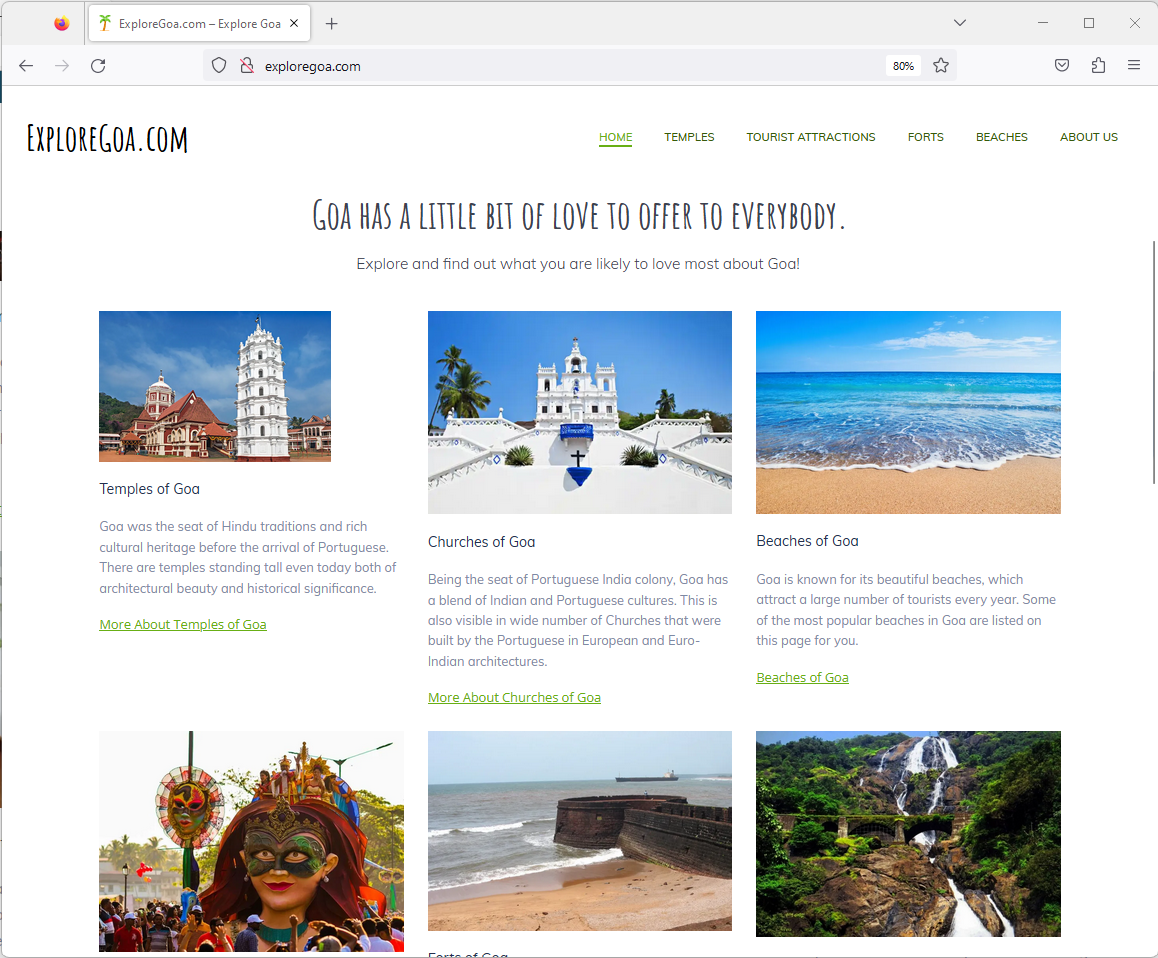Ever since OpenAI released #chatgpt to the public on an experimental basis, the AI world has been taken by storm. There are numerous articles on how it sent cold shivers down Google, how it could eliminate many more jobs (specifically of content creators) and how it could impact the industries in both positive and negative ways.
Here, I carried out a small experiment on what ChatGPT could do in the field of travel-writing. I picked a specific use case of Goa – the beach haven in India. I had a domain name lying idle, thanks to a Geeklog portal that had crashed few months ago due to a long-pending upgrade. I wiped it clean and using WordPress, ColibriWP and ChatGPT, produced this website http://ExploreGoa.com in a matter of 24 hours.
The content on each internal page (except home page) has been produced by ChatGPT to specific questions that were asked. These questions went on to become the page titles. Following are the points on how ChatGPT scored in different parameters:
- All the responses it provided were correct, the names of the places and the suburbs do match
- When asked about “Best…”, it did give the names of places (ex: Clubs) but it did not reveal the source or the logic how it determined these as “Best” in the category
- On two occasions, the ChatGPT repeated the answers. It intelligently recognized that it was repeating the same place again and again, apologized for the mistake!
- On the Homestays page, it failed to print the locations/addresses/areas of the popular homestays it had successfully listed
- When asked to share the sources, ChatGPT responded with “I’m sorry, but I am an AI language model and do not have the ability to browse the internet or access external sources. The information I provide is based on my training data, which consists of a wide range of publicly available texts.“
- When asked if the text produced by ChatGPT is copyright, the verbatim response “The content produced by ChatGPT is not automatically copyrighted. Copyright is a legal concept that applies to original works of authorship fixed in a tangible form, such as a written document or a computer program. The content generated by ChatGPT may be protected by copyright if it is the original work of the person who trained or is using the model, or if it is based on pre-existing copyrighted material used to train the model. It’s better to take legal advice on the matter as laws can vary by region.“. So, there is some grey area in between
Now, let us see if the information provided is fit for purpose:
- Can somebody plan a trip to Goa with just the information made available on the website (a.k.a. ChatGPT)? The answer is no. It requires further details that ChatGPT was unable to provide (probably short on training data)
- Is the information actionable by itself? Again no. This is the difference between Google and ChatGPT. Google will share a bunch of links to various websites which help you take further action.
- Is the information latest/current? By ChatGPT’s own admission, the last trained dataset is from 2021. This means the data may be stale, some of the hotels, restaurants, clubs may have essentially closed down in the past ~2 years
Final Verdict?
There are many really intelligent ways of using ChatGPT, even within the Travel industry. For instance,
- It could be trained to predict the likelihood of a customer or segment of customers buying a tour package to certain destinations or kind of destinations
- It could be used to reduce the carbon emissions and contribute towards sustainable tourism
- Asking it to produce a well-researched blog or tourist destination page for an interactive travel website that needs to present current, up to date information to visitors is certainly not one of the best uses of an advanced artificial intelligence platform
What other use cases in travel industry in general and destination marketing in particular do you have? Share your thoughts through comments below.

No responses yet